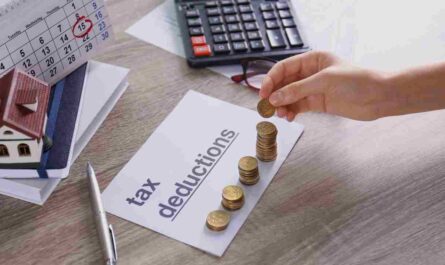Florida’s booming housing market has helped millions of residents build wealth, but for nearly half of all homeowners, that appreciation may now come with a tax bill they never expected.
A federal capital gains exclusion rule from the 1990s is quietly hitting sellers in the Sunshine State with what economists call a hidden home equity tax.
According to the National Association of REALTORS®, 47.8% of Florida homeowners have exceeded the $250,000 capital gains exclusion allowed for single filers. Another 11.7% have passed the $500,000 limit for joint filers. With sustained growth in cities like Tampa, Miami, Orlando, and Jacksonville, these numbers are only heading higher.
Tax limits that no longer match home prices
The current federal exemption was designed in 1997 to protect middle-class homeowners. It allows sellers to exclude up to $250,000 in profit—or $500,000 for married couples—when selling their primary home. But those caps haven’t changed in over 25 years, even as U.S. home prices have jumped more than 260%.
If the exclusions had been tied to inflation, they’d be over $660,000 for individuals and $1.32 million for couples. Instead, Florida homeowners who’ve simply stayed in their homes and watched values rise are now being taxed on gains they assumed were protected.
While Florida has no state income tax—a big advantage for many—the federal capital gains tax on home sales still applies. And for some long-term owners, that can mean tens of thousands owed to the IRS.Homeowners Face a Stiff Penalty for Staying in Their Homes Too Long—a Hidden Home Equity Tax
Equity growth comes with tradeoffs
Florida’s affordability and sunshine have attracted millions of new residents, fueling steady home value appreciation across nearly every corner of the state. That’s helped homeowners build equity—but it also means more are crossing the capital gains threshold each year.
This issue is particularly acute for older Floridians who bought decades ago. Their equity gains—once considered their retirement cushion—now come with strings attached. Many are learning about the real estate capital gains tax just as they begin planning to downsize or relocate.
As a result, many owners are choosing to stay put longer to avoid the tax—a trend housing economists refer to as the “stay-put penalty.” That choice, while understandable, limits inventory for younger buyers and keeps pressure on home prices.
And Florida is hit the hardest amongst the states in the area, with other retiree locals like Georgia, Lousiana, and the Carolina’s call carrying a far smaller burden.
The next decade will bring more exposure
But the worst is yet to come for the Sunshine State. According to the NAR, By 2035, a staggering 93.8% of Florida homeowners are expected to blow past the $250,000 capital gains exclusion, with nearly 69% projected to exceed the $500,000 cap—putting the Sunshine State on a collision course with massive tax bills for longtime owners.
That means nearly every long-term homeowner in the state could face some level of tax liability when they sell. It’s a major reason analysts now warn that the housing market is freezing up—not because of lack of demand, but because sellers are discouraged from listing.
A Proposed Fix Could Help Unlock Inventory
To modernize the outdated rule, lawmakers have introduced the More Homes on the Market Act. The bill would double the exemption limits and adjust them for inflation—bringing the tax policy in line with today’s housing market.
“Equity shouldn’t be a trap,” says Shannon McGahn, chief advocacy officer for the NAR. “It should be a stepping stone for the next chapter”.
For Florida homeowners thinking about selling, especially retirees and longtime owners, it’s critical to plan ahead. Understanding your potential exposure to capital gains and consulting a tax advisor could help avoid surprises—and protect the wealth you’ve worked so long to build.




